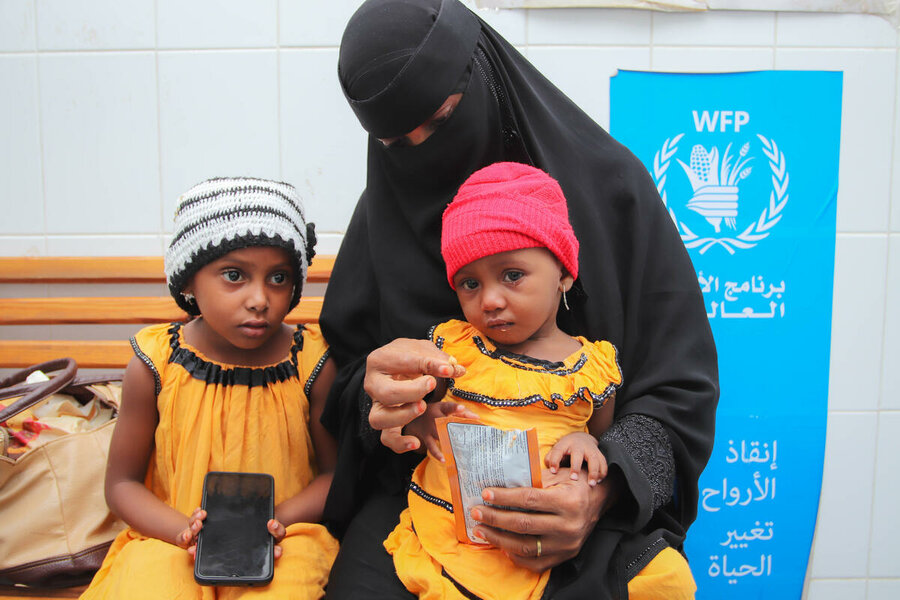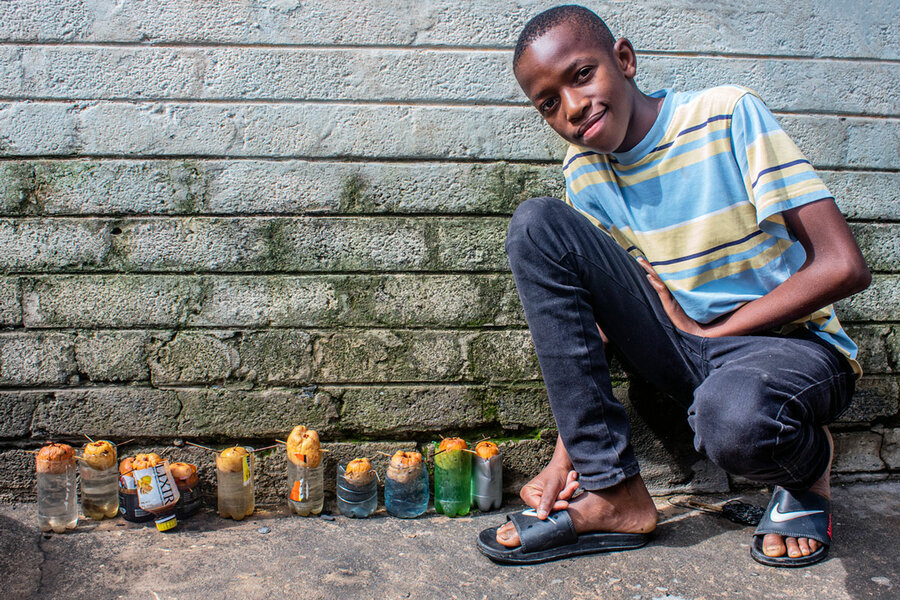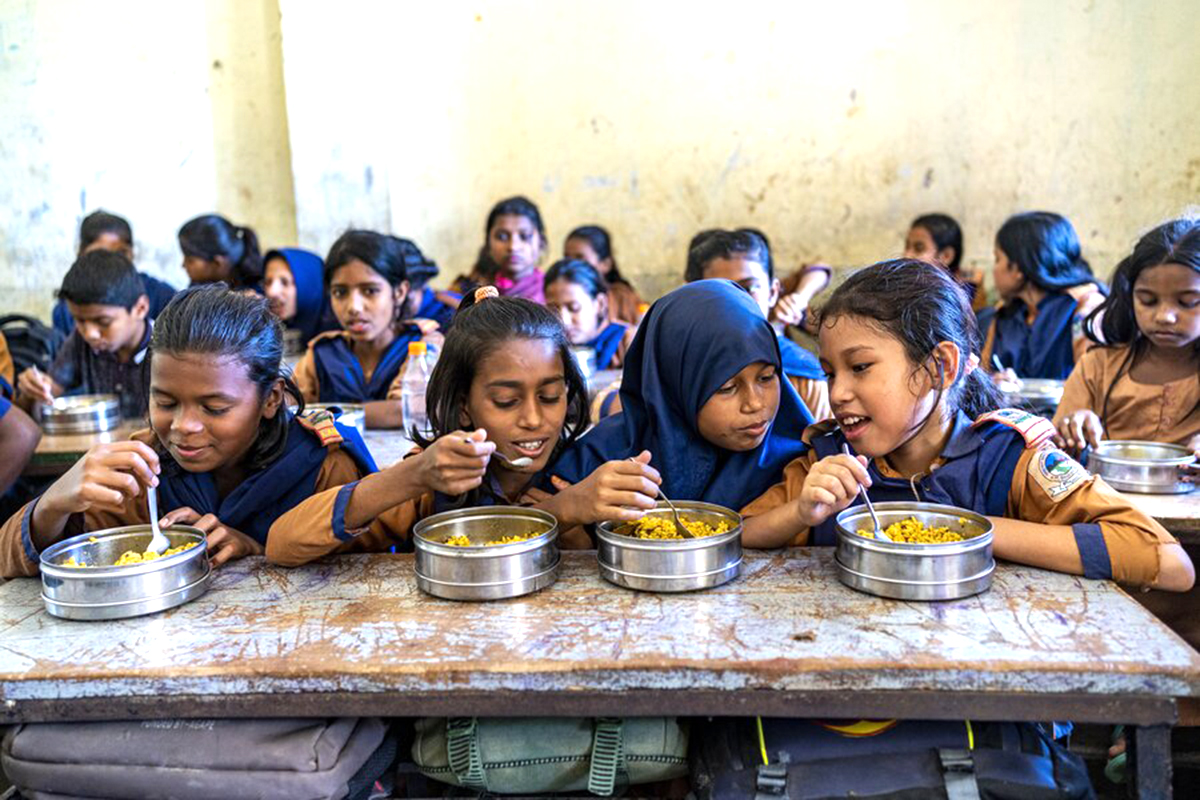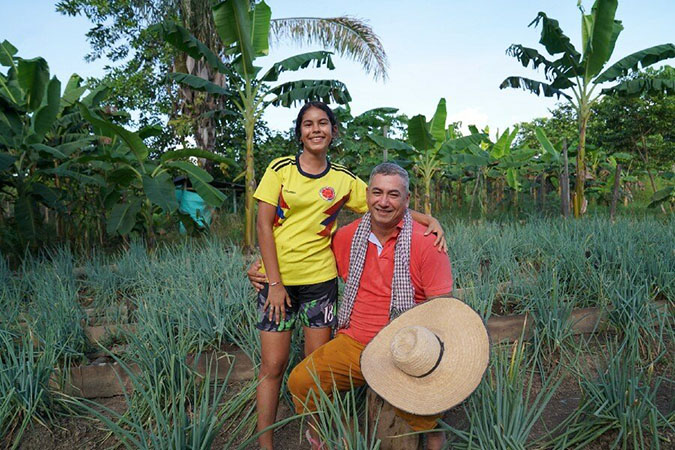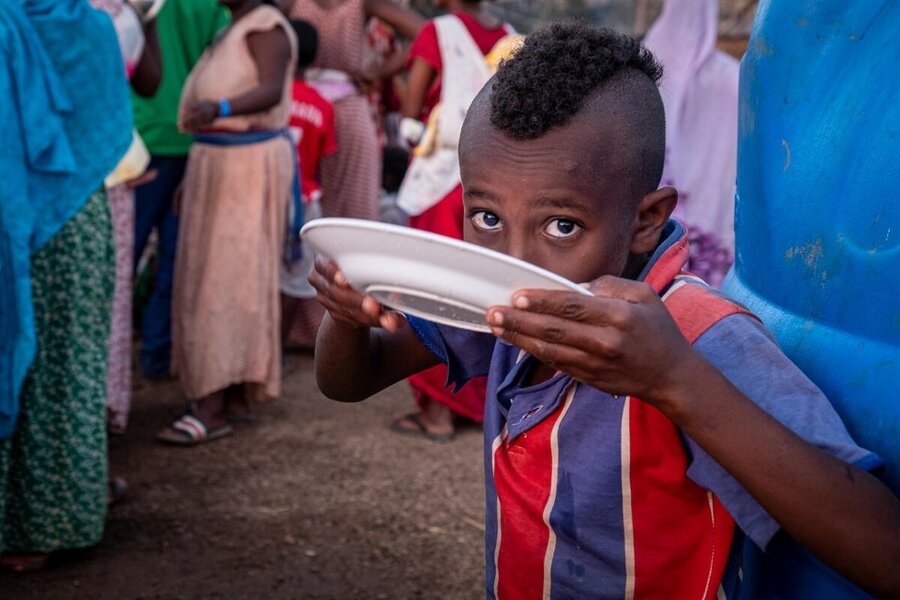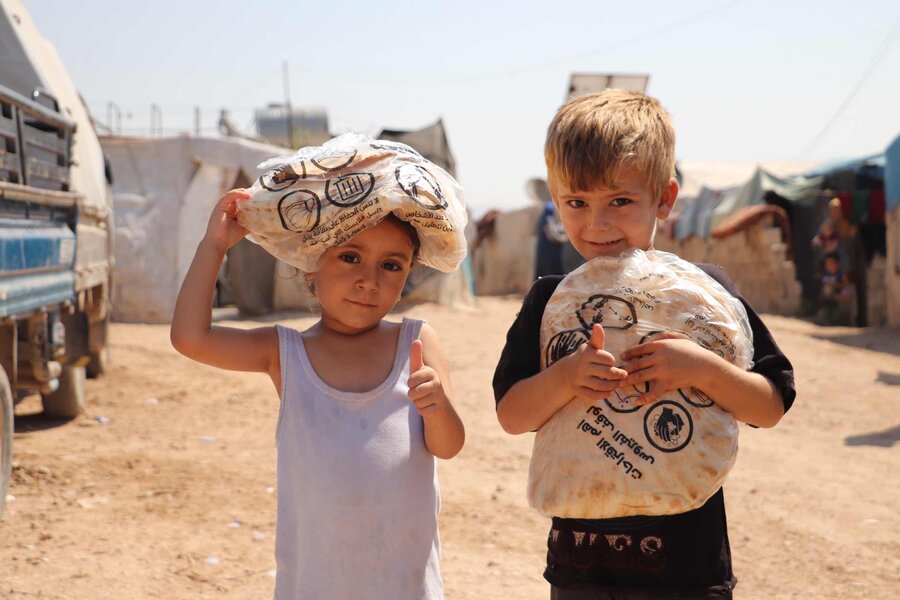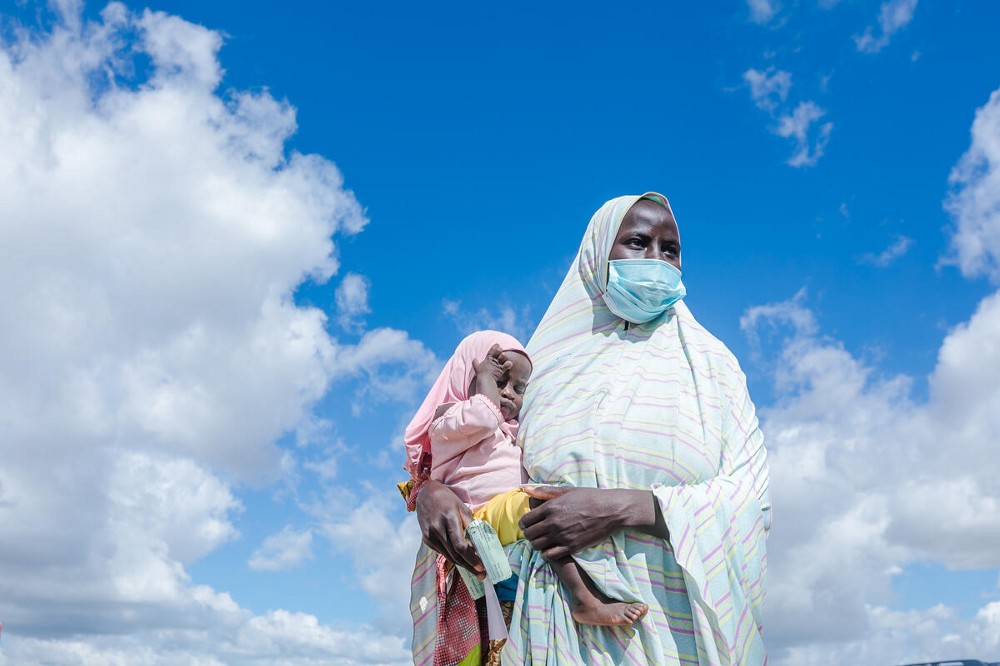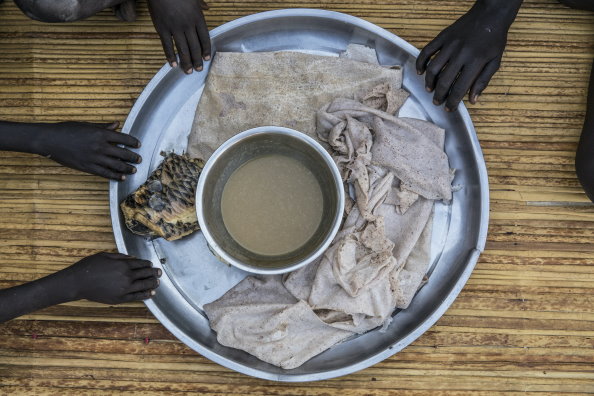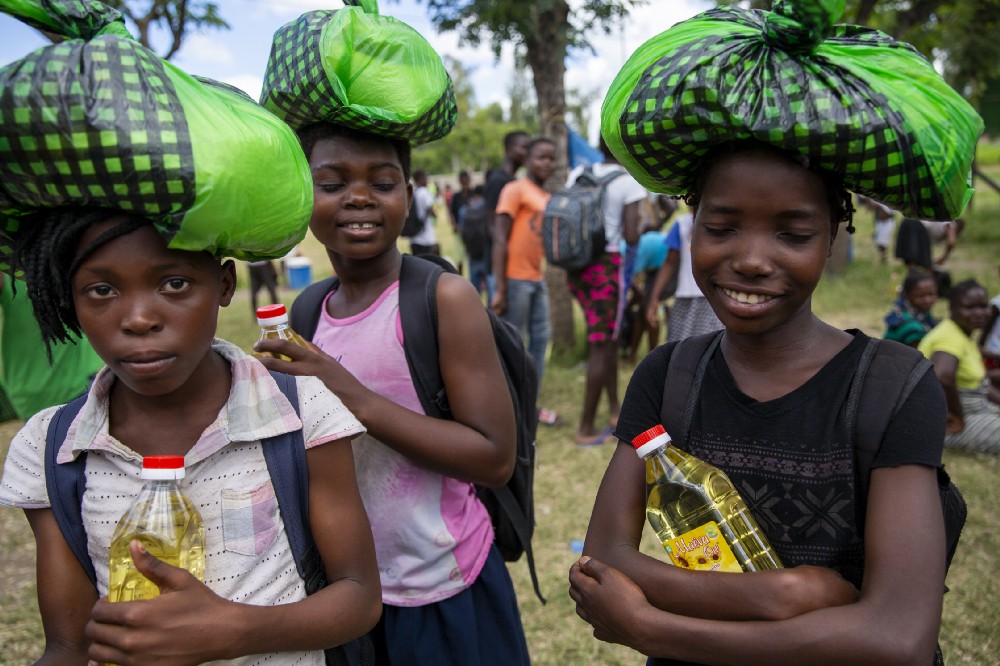People in Yemen face famine unless the world takes immediate action, the World Food Programme WFP), warned this month. Nearly 50,000 people in Yemen are already living in famine-like conditions, with 5 million just a step away. The UN estimates nearly 250,000 people have died during Yemen’s six-year war, including more than 131,000 people from the indirect consequences of conflict, such as lack of food, health services and infrastructure — the situation in the country is worse now than it has been at any point since 2015. Despite ongoing humanitarian assistance, 16.2 million Yemenis are food insecure.
Food Aid
David is learning to grow avocado, green peppers, chillies, rapeseed leaves and potatoes using hydroponics techniques. “My dream is to become a hydroponics expert,” he says. Hydroponics is a soilless cultivation technique that enables plant growth all year round. It uses up to 90 percent less water and 75 percent less space than traditional agriculture, while growing crops 100 percent faster. The 13-year-old lives in Kitwe, Zambia — a country of 18 million people whose food security is threatened by extreme weather caused by climate change.
Better health and nutrition allow children to learn and perform better, broadening their educational opportunities. School feeding empowers girls by dissuading parents from marrying them off early, acts as an incentive for families to enrol and keep children in school, relieves parents from having to budget for lunches. The WFP strategy (2020 – 2030) lays out its vision of working with governments and partners to jointly ensure that all primary schoolchildren have access to good quality meals in school, accompanied by a broader integrated package of health and nutrition services.
In the year the coronavirus pandemic deepened the global hunger crisis—the World Food Programme (WFP) was at hand, providing life-saving assistance, working to save and change lives, against all odds. Below is a selection of stories from our staff around the world. From building fragile nations’ resilience and helping them graduate out of food insecurity to providing cash assistance that empowers the stigmatized LGBT+ community, WFP saves and changes lives around the world. Pictured is a community resilience project that helps people in Central Sahel fight against the impacts of conflict and hunger through rehabilitation of barren land.
WFP’s fundraising app, ShareTheMeal, was recognized by both Google and Apple as one of the best apps of 2020.
The Training and Reincorporation Centre may sound forbidding but it’s a place where former combatants in Colombia’s conflicts can learn poultry and fish farming with the support of the World Food Programme (WFP). Edgar, a FARC ex-combatant, is one of 187 former combatants and their families who take part in agricultural projects as part of a process to bring them all back into mainstream society. The aim is to train people to diversify both the production and consumption of food; while providing access to local markets.
WFP responds as refugees from Ethiopia seek sanctuary in Sudan
After more than nine years of conflict, life in Syria has never been harder. Food prices are soaring and the life families hoped they would rebuild is further away than ever. In the past year alone, the price of basic foods has increased by a staggering 247 percent. Putting a basic meal on the table has never been so difficult during this crisis, which kicked off in 2011. Each month WFP provides life-saving food to 4.8 million Syrians.
Coronavirus could push migrant workers and their families into hunger, UN agencies warn
WFP’s Cost of a Plate of Food 2020 report highlights the countries where a simple meal such as rice and beans costs the most, when compared with people’s incomes.
The UN World Food Programme (WFP), which provides lifesaving food assistance to millions across the world – often in extremely dangerous and hard-to-access conditions – has been awarded the 2020 Nobel Peace Prize. The agency was recognized “for its efforts to combat hunger, for its contribution
12 things you didn’t know about the World Food Programme
‘Coronavirus destroys everything’: Urban hunger grips Zimbabwe
The United Nations World Food Programme (WFP) has announced a massive rise in the number of hungry people it plans to assist around the world, as the devastating socio-economic impacts of the COVID-19 pandemic push millions more people into food insecurity in low- and middle-income countries. “The frontline in the battle against the coronavirus is shifting from the rich world to the poor world,” said David Beasley, WFP’s Executive Director. “Until the day we have a medical vaccine, food is the best vaccine against chaos. Without it, we could see increased social unrest and protests, a rise in migration, deepening conflict and widespread under-nutrition among populations that were previously immune from hunger.”

